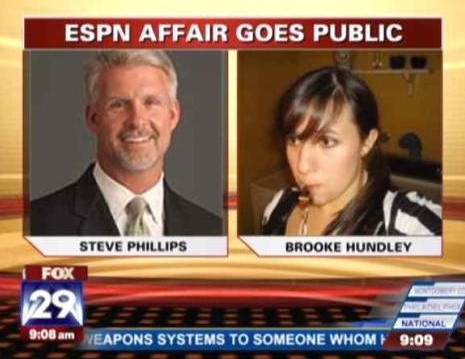On Discovering That the Kids Have Drunk Nearly All the Scotch
On Discovering That the Kids Have Drunk Nearly All the Scotch

Good Lord.
The kids have drunk all the Scotch!
Or was it us, and I just didn’t realize?
… I don’t even know anybody who drinks Scotch.
Except the kids, apparently!
It had just been sitting there for ages, nearly full, and now there is only this little splash in the bottom!
They would have done far better to finish it off, and throw the empty bottle out in the recycling; I should never have been the wiser.
But as matters stand!
And just look at all that bourbon, almost a full bottle?
It seems to me that we were a lot better at covering our tracks, at their age.
Oh come on, nothing on God’s green earth earth could be stupider than I was, at their age; really it is a miracle we survived at all; doubly miraculous, that anyone ever emerged alive from Bruce’s station wagon.
One way and another.
I’m going to have to say something.
But what?!
Does this explain why they stay in bed until mid-afternoon, if you don’t force them out with a cattle prod?
Or why the one is forever banging out Chopin on the piano, so late at night?
And so beautifully.
This is what comes of not having a locked liquor cabinet.
There would be no way to hide the key from them, is the thing. They know everything.
Cormac McCarthy mentions this, he says, they just are like wolves:
[T]ryin’ to get the best of a wolf is like tryin’ to get the best of a kid. It ain’t that they’re smarter. It’s just that they ain’t got all that much else to think about.
I will ask: have you guys been drinking Scotch? It is very strong, you know.
You mustn’t let anyone drive who has had Scotch!
It is very very noticeable on the breath; stow such a person on the nearest sofa; I have mentioned before that you should offer wine rather than spirits, if you are having guests.
It is much easier on the head, the next day.
And have it with food, for God’s sake.
There isn’t much gin left, either.
But that is attributable to us.
Maria Bustillos is the author of Dorkismo: The Macho of the Dork and
Act Like a Gentleman, Think Like a Woman.
Photo by chad magiera from Flickr.
Study Results Force Choice Between Ignorance And Racism

Let’s say you’re a climate-change denialist who believes that the worst threat to this country comes from darker-skinned people, particularly those who speak Spanish and head here from points south. Congratulations, you represent the current mainstream of Republican party thinking! But also, how would you wrap your head around something like this?
A wave of up to 6.7 million migrants from Mexico could head to the United States to escape the ravages of climate change on crops, say the authors of a new study. The findings are claimed to be the first to thoroughly quantify how shifts in global climate might affect human migration from one region to another.
The study’s authors, from Princeton University in New Jersey, say the United States should prepare for the arrival of up to 10% of Mexico’s adult population over the next 70 years as a result of falling agricultural productivity due to climate change.
To deny or to demagogue? Why must life be full of such hard choices?
Ambitious, Difficult Women: They May Or May Not Be Pretty, Sleeping With Someone At Work
by Jane Hu

Last week, the New York Observer published a revelatory article about Gerry Marzorati’s departure from the Times magazine. Staffers at the magazine indicated that Marzorati’s recurrent promotions of an editor named Megan Liberman might have precipitated both their and his ultimate leave-taking. Described as Marzorati’s “extremely close confidante” and “very close ally,” Liberman’s privileged position was viewed with suspicion or antipathy by the magazine’s staff.
Following this, I was asked to research the precedence of alleged and hinted affairs in media stories, while warned that the task was “a tricky and perhaps impossible mission… It’s impossible to use search terms for this kind of thing.” Nonetheless, I was sold. The English major in me jumped at the chance to apply anything I had learned about deconstruction. How does one insinuate sex? What were the buzzwords for scandal?
Taking a direct shot in the dark, I googled “sex,” “scandal,” “affair,” “media,” and various combinations of these words. The result was abysmal. And by abysmal, I mean huge. I searched the Times for “seen together,” optimistic about its connotations of clandestine meetings and anonymous, second-hand sources. The results were marginally better. And by better, I mean, at least smaller.
Despite my erratic “research” methods, the relative stories I found all contained one trend: ambitious and often “troublesome” women who profited professionally by their involvement with established men of authority. Of course, had these stories involved the relationship between two men, one would always (well, almost always) have simply called it “networking.” With women, networking was recast as a pejorative and manipulative working of the system. And because there were ladies involved, the articles-though not in this Observer story-emphasized their sexual appeal and activities with the men in question.
For instance, the Daily News Rush & Molloy column depicted Casey Greenfield as “a pretty, ginger-haired, Yale-educated lawyer who last march gave birth to [Jeffrey Toobin’s] love child.” Were they were trying to list her attributes in ascending or descending order? (There’s only one correct answer.)
Conscious of this pattern, I began to look through lists of Most Powerful Women and search their names alongside suggestive words like “beautiful,” “attractive,” “ambitious,” “sex,” “intern” and “glass ceiling.”
Searches including “intern” yielded consistent results, as Monica Lewinsky’s name ceaselessly filled my screen. Of more recent interest was Jimmy Kimmel’s involvement with Molly McNearney, which caused anonymous sources to go wild. Before that, David Letterman’s affair with Joe Halderman’s girlfriend, Late Night staffer Stephanie Birkitt, caused a riot. Vanity Fair wrote about…
the explosive triangle-Birkitt’s ambition, Halderman’s bitterness, and Letterman’s self-loathing-that rocked CBS.
At least that sentence makes nobody look good?
And, naturally, these things don’t always work out. Unlike Birkitt’s rise at Late Night, ESPN intern Brooke Hundley’s affair with analyst Steve Phillips cost them both their jobs.
To my amusement, certain articles especially complemented my search formula:
Blond beauty Traci Johnson’s father and aunt both believed the former NBC intern was helping out-instead of hooking up with-the three-time All-Pro and father of two.
All these stereotypes were, if not more, at least as prevalent in business media. New York magazine describes Zoe Cruz, former co-president of Morgan Stanley, as:
a petite, attractive woman with large brown eyes and a big, dimpled smile. She bore a passing resemblance to the actress Juliette Binoche, and she spoke with the trilled r’s of a Greek accent.
Similarly, Erin Callan, onetime CFO of Lehman Brothers, “soared not only because of her skills but also because of her style. She was charismatic and flirty.”
The winner for most cringe-worthy vocabulary goes to the Vanity Fair article on Maria Bartiromo and Erin Burnett, “Who Is Wall Street’s Queen B.?”, where Suzanna Andrews writes:
[Bartiromo] has worked hard, for years, to get here, so the meteoric rise of another gorgeous CNBC anchor, 32-year-old Erin Burnett-‘Street Sweetie’ to Bartiromo’s ‘Money Honey’-has everyone talking catfight.
Andrews goes on to describe Burnett’s “sultry blue eyes, sharp, almost perfect features, dimples, and a lazy, bedroomy smile.” The article intentionally lures the reader by first presenting Bartiromo and Burnett’s potential “catfight,” only to later concede that both women “think the idea of a rivalry between them is particularly absurd.” Burnett suggests that “when people see strong, successful women, they love to imagine that there is a rivalry… And maybe, I don’t know, it’s a male-fantasy thing.”
And maybe, I don’t know, it’s a female-fantasy thing too? Maybe therein lay part of the problem. The portrayal of driven women who expertly capitalize on their femininity is already a skewed vision. We all know this. Andrews knows this, and chooses to describe Bartiromo and Burnett in highly sexualized terms for her readers’ enjoyment. I know this, and used a search methodology that further highlighted such gendered biases — no matter what I found, the results would inevitably be sexist and subjective.
My compliance with the prejudices expressed in media further exposed my own conflicting interests. Although I deliberately searched for scandal pieces, another part of me hoped to find nothing. Such stories only diminished the woman’s hard work and raw intelligence because they weren’t presented as networking opportunities, but as acts of sly seduction-no matter which they were.
Tales of media hook-ups aren’t shocking to anyone these days-they’re expected. The Observer describes Liberman as “outspoken and ambitious… ‘abrasive’ … She clearly is not a resoundingly popular colleague.” In her defense, Marzorati replied:
I promoted a young woman, a really smart woman and an ambitious woman, and ambitious women make people uncomfortable.
Well, we already knew that.
And yet, she’s not a woman who’s expected to take over. A month ago, New York magazine proposed “some educated guesses” of who would assume Marzorati’s position. They were all men.
When Paul Wolfowitz was considered to replace George Tenet as director of the CIA, Salon released an article that described Wolfowitz’s relationship with World Bank staffer Shaha Ali Riza as his “zipper problem.” The piece notes, “Wolfwitz’s critics…delighted in referring to Shaha Riza as ‘his neoconcubine.’” These were, at least, phrases I had never even considered to look up. The Washington Post cited Riza’s frustrated response toward outside perceptions:
How would you like to be portrayed as somebody’s bimbo when you’re a highly educated person who has actually worked hard to make life better for women and civil society in the Middle East and has actually achieved a lot.
Despite her accomplishments as an influential Oxford-trained, multilingual feminist and Middle East expert, Riza’s involvement with Wolfowitz now means the main section on her Wikipedia page is titled “Wolfowitz scandal.”
Think about Anna Wintour, Andrea Mitchell or Arianna Huffington. Now think about Wintour and Richard Neville, Mitchell and Alan Greenspan, Huffington and, well, Huffington. Women who want to work on media stories often become the stories themselves.
When Laura Mulvey wrote her seminal paper, “Visual Pleasure and Narrative Cinema,” she famously asserted that women were passive objects of scopophilic pleasure (oh yes, the “male gaze”) in Hollywood films:
In a world ordered by sexual imbalance, pleasure in looking has been split between active/male and passive/female. The determining male gaze projects its phantasy on to the female figure which is styled accordingly. In their traditional exhibitionist role women are simultaneously looked at and displayed, with their appearance coded for strong visual and erotic impact so that they can be said to connote to-be-looked-at-ness.
The essay, published in 1975, received an enormous flood of backlash because, well, Mulvey was mostly right. She explored what was, and still is, a disturbing state of affairs regarding female objectification.
Mulvey states that women do not drive narrative, but are merely passive sites of male speculation and fantasy. Liberman stood on the margins of Marzorati’s story as a pretty ornament to aroused intrigue. In actual parenthesis, Koblin added, “Ms. Liberman did not respond to a request for comment.” Similarly, although Riza’s friends encouraged her “to go public and tell her side of the story… Riza declined to comment.” In an effort to preserve their intellectual merits, most women avoid public statements. There is no viable means of asserting themselves without further damage to reputation; Liberman and Riza remained silent.
If you’re looking for media scandal, you’ll find it, at least because everyone has biases and someone inevitably shares yours. The problem is that straight men see themselves as normative, neutral, and natural. It’s understandable-when have they needed to think in any other but this limited way?
Nation Mourns Elephant
“She had lived through all the ups and downs this country faced… the war of independence, the political upheavals. She was part of Bangladesh’s culture and an asset to the zoo; she earned the government lakhs in revenue.”
-Pobontara, the most famous elephant in Bangladesh, died of cardiac arrest on Thursday at the age of 100. The zoo “declared three days of mourning till Sunday, during which there were no fun rides on the other elephants.” [Via]
Lady Likes Book
Michiko Kakutani really, really, really likes Gary Shteyngart’s new novel, Super Sad True Love Story
. She thinks it’s super!
Verizon Hoping New Yorkers Believe "Digital Cross Connect" Is A Thing
Use Verizon? On the east side? Your phone might not work! “Due to a malfunction in Verizon’s network, both landlines and AT&T; cell phones (oh no, the iPhone!) connected to the network have reportedly been out of service. Verizon Communications Inc. says the ‘digital cross connect’ that connects calls on the East side of Manhattan from 20th Street to 40th Street is at fault.”
Terrafugia Releases Their Flying Car Renderings!

Ooh, Terrafugia released renderings of their allegedly flying car, the allegedly going to be mass-produced Transition-which was previously largely conceptual in nature until recently. I am going to fly the shit out of this car. Right into the ocean.
Gov. Paterson Unsure About Snooki
“Gov. Christie is a friend of mine and if he’s offended by the show I’ll have to watch it sometime. He must have some time on his hands. He passed a property tax cap. That’s why he has the time to watch the show.”
-New York governor David Paterson explains why we’re all FUCKED he hasn’t had a chance to watch “Jersey Shore,” unlike his counterpart across the river, who is displeased by the show.
Humanity Now Allowed to Purchase, Use Products
In 2010, it was made official that you could purchase physical products and then put them to whatever use you wish.
